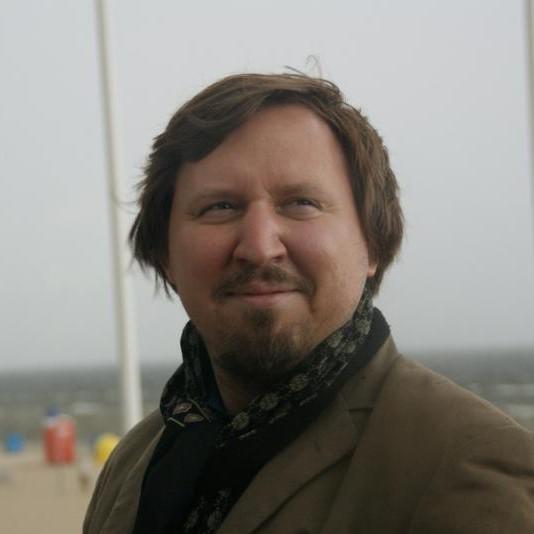Taught in collaboration with the Faculty of History at the Taras Shevchenko National University in Kyiv, Ukraine, this course will use the historian's toolkit to examine borders and memory-making at war through a global lens.
Terms Offered
Spring 2024
Spring 2025
Course Details
Russia's full-scale invasion of Ukraine has shone a spotlight on the need for evidence-based, critical discussion of borders and memory-making, grounded in History but speaking to a wider global public. This course will use the historian's toolkit to examine borders and memory-making at war through a global lens. Bringing together undergrads from College Park & from Kyiv, Ukraine, this Global Classroom will both compare & connect different stories across time and space, from the Polish-Ukrainian borderlands, to the US-Mexico border, to Korea, to Rwanda and Uganda. Content delivery will combine once-a-week online, real-time mini-lectures with small-group projects & meetings. These will facilitate collaborative partnerships between US & Ukrainian students.
Number of credits: 3
How You Will Learn and Work
This is a Global Classrooms Signature Course. It is taught in collaboration with the Faculty of History at the Taras Shevchenko National University in Kyiv, Ukraine. This course will include a blend of synchronous and asynchronous learning.
Cultural Connection
Ukraine
General Education Credits
None
School/College
College of Arts and Humanities
Prerequisites & Restrictions
None
Faculty Highlight

Piotr H. Kosicki
Piotr H. Kosicki specializes in the transnational history of modern Europe--East and West--and its global implications. He focuses particularly on religion (especially Roman Catholicism), politics, historical memory, and the entangled history of ideas and activist networks. Trained as a historian of both Poland and France,his research has increasingly turned to Ukraine on the one hand and to Latin America (in particular, Venezuela) on the other.
Kosicki is the author of Catholics on the Barricades: Poland, France, and "Revolution," 1891-1956 (Yale University Press, 2018). He has edited eight volumes, including Political Exile in the Global Twentieth Century (Leuven University Press, 2021/Cornell University Press, 2022); Christian Democracy and the Fall of Communism (Leuven University Press, 2019/Cornell University Press, 2020); The Long 1989: Decades of Global Revolution (Central European University Press, 2019); Christian Democracy across the Iron Curtain: Europe Redefined (Springer, 2018); and Vatican II Behind the Iron Curtain (Catholic University of America Press, 2016), as well as a special issue of East European Politics and Societies (November 2015) devoted to memory of the Katyń Massacres.
Piotr Kosicki has also published over twenty refereed articles and chapters in English, French, German, Polish, and Slovak, most notably in Contemporary European History, East European Politics and Societies, Modern Intellectual History, Slavic Review, and Vingtième Siècle. Revue d’histoire. He received the 2015 Aquila Polonica Prize for Best Article in Polish Studies for "Masters in their Own Home or Defenders of the Human Person? Wojciech Korfanty, Antisemitism, and the Illiberal Rights-Talk of Polish Christian Democracy," Modern Intellectual History 14.1 (2017). He has been shortlisted for Poland’s Oskar Halecki Prize and for the prestigious Kazimierz Moczarski Award for Best Historical Book.
In 2021, Piotr Kosicki held a non-resident Sheptyts’kyi Senior Fellowship in Ukraine in European Dialogue at the Institute for Human Sciences (IWM) in Vienna. Since Russia’s invasion of Ukraine, Kosicki has increasingly become an advocate for displaced Ukrainian scholars in Poland, in the US, and elsewhere. Scholars in need of support should feel free to reach out to him via e-mail at kosicki@umd.edu.
Piotr Kosicki is at work on three long-term projects. The first, entitled A New Kind of Progressive, explores how European Catholic politicians belonging to the political family known as Christian Democracy partnered with the US foreign policy establishment to cast Venezuela as the incubator for a new, anti-communist vision of social justice. The second project, Apocalypse Forever, recasts the history of modern Europe through the lens of Judeo-Christian apocalyptic thinking. The third, A History of Central and Eastern Europe: Into the Modern, adopts transnational and trans-regional lenses to explain the modern trajectory of Europe from the Baltic to the Black Seas and from Germany to Ukraine.
As a public commentator, Kosicki has written for Commonweal, Eurozine, Gazeta Wyborcza, The Nation, The New Republic, and the Times Literary Supplement. He hosts a monthly podcast on the New Books Network.
Recipient of a Ph.D. in History from Princeton University, Piotr Kosicki has won Fulbright, Chateaubriand, and ACLS/Mellon New Faculty Fellowships, as well as multiple Hoover Institution fellowships, multiple Title VIII grants from the Woodrow Wilson International Center for Scholars, and multiple research grants from the German Historical Institute in Warsaw. He is a past chair of the Kulczycki Prize Committee of the Association for Slavic, East European, and Eurasian Studies, as well as a past board member of the Polish Studies Association. He serves on the Advisory Board of H-CATHOLIC and the Scientific and Editorial Committees of the CIVITAS Forum of Archives and Research on Christian Democracy. In 2021, he was appointed Associate Editor of the journal Canadian Slavonic Papers/Revue canadienne des slavistes.
Tuition & Scholarship
Course costs should be calculated based on the university’s standard tuition and fees for undergraduate students and graduate students.
Students enrolled in winter and summer Global Classrooms courses may be eligible for the International Education Scholarship.
Cancellation and Refunds
Global Classrooms courses follow UMD's Schedule Adjustment policies.
Questions & Contact Info
For more course information contact Dr. Piotr Kosicki at kosicki@umd.edu.
For general questions, please contact the Global Classrooms team at globalclassrooms@umd.edu.
